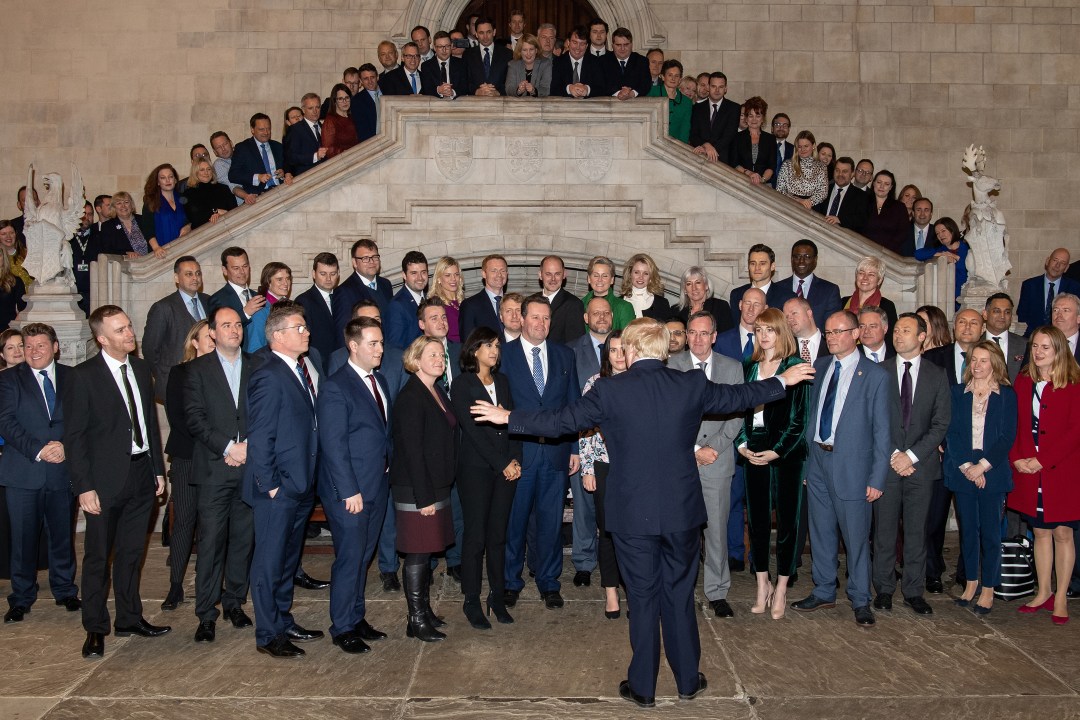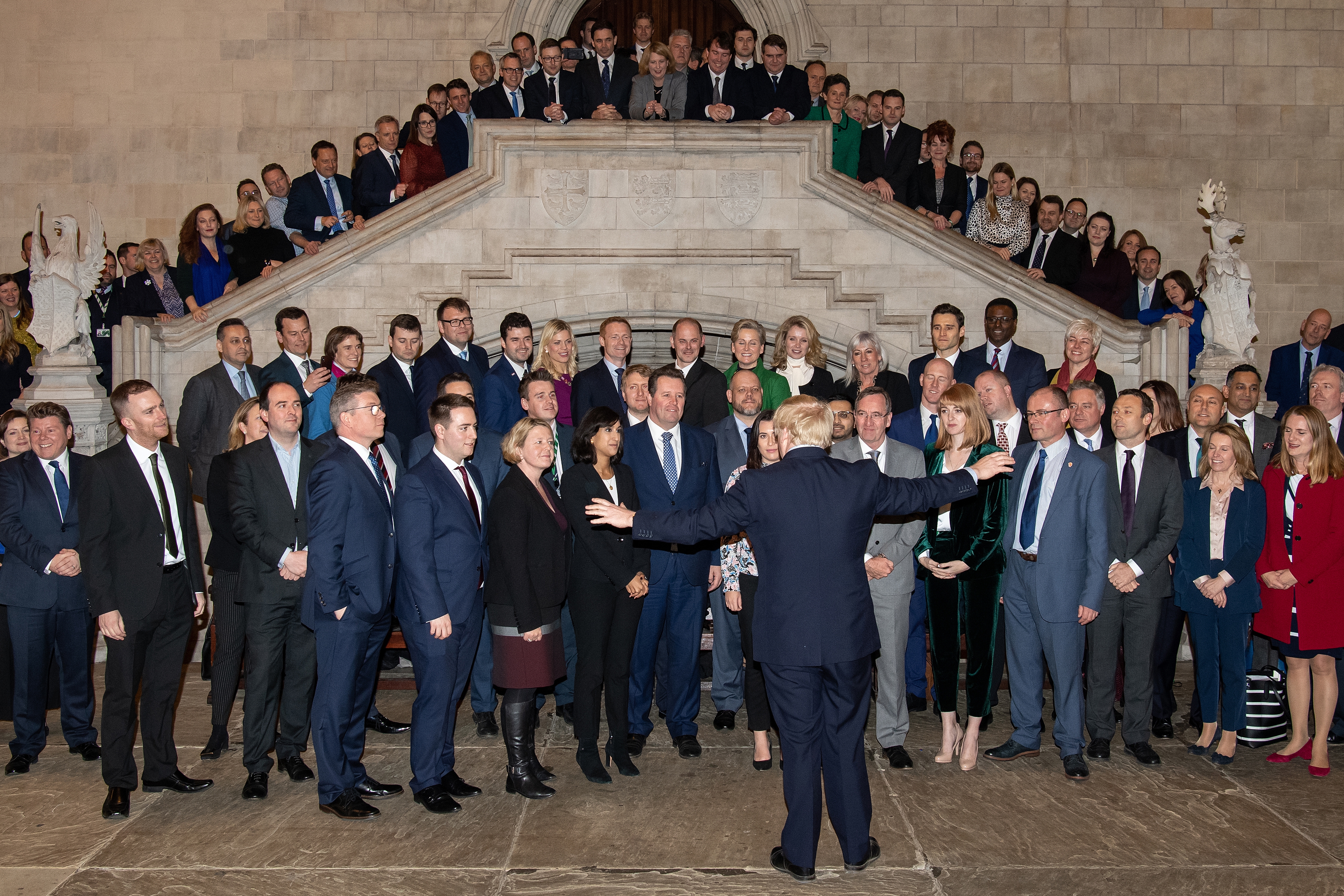As Boris Johnson marks a year in Downing Street, one of his biggest achievements to date had been the destruction of Labour’s red wall. In the 2019 election, the Prime Minister succeeded in turning many seats in the Midlands and North blue for the first time. At cabinet this week, he referred to them as his ‘blue wall’ MPs, a nod to his desire to keep the once Labour heartlands Tory. However, as I say in this week’s magazine, the new intake’s first few months have been bumpy and this has repercussions for party management.
The 2019 intake barely had time to set up their offices before they were sent back to their constituencies for lockdown. This meant they didn’t have the usual set-up for building ties with their colleagues. ‘Not having people physically in any office means you are less of a team and there’s less loyalty,’ explains a government aide. Since then, they haven’t exactly earned gold stars for good behaviour. They’ve been among the first to call for U-turns, to ask the Treasury for more money and to publicly distance themselves from Dominic Cummings.
‘We call them the WhatsApp warriors,’ says an MP from the 2015 intake. ‘They are not backward in coming forward with their grievances.’ ‘They’re just not controlled at the moment,’ says a minister. ‘Lockdown has made it harder — it’s not allowed the usual bonds to form.’ With difficult decisions looming, there’s a worry in government that these newbies can’t be relied upon when the going gets tough.
They break down roughly into three groups: former special advisers — regarded as the most political savvy; the safe seaters — lifelong Tories planning a political career for years; and the red wall MPs — many of whom hadn’t expected to win their seats from Labour. It’s this last group that are of most importance to No. 10’s plans, and have the potential to cause the biggest problems. MPs representing seats such as Great Grimsby and Blyth Valley have an influence that MPs in Surrey or the New Forest don’t, regardless of their personal qualities. ‘Let’s face it, had we thought we were going to win some of these seats, we would have had different candidates,’ says a senior Tory.
Red wall MPs take umbrage with the idea that they are the problem. ‘I think we are generally very supportive,’ says one. ‘There was a bit of a wobble around Dominic Cummings, but ultimately we are loyal to Boris in a way others aren’t — we know he helped us get our seats.’ While some MPs view their new colleagues as thin-skinned, this is partly down to their constituency set-ups. In these new seats, the party apparatus is often only a handful of people, making MPs particularly sensitive to what their association thinks. ‘We are used to an avalanche of abuse but when you get the few people who would be supportive turning on you, it feels very intense.’
Slim majorities also mean red wall MPs don’t feel they have the luxury of time when it comes to constituency grievances. If promises are not delivered, they won’t be here after the next election. This is part of the reason they have started to act as a separate bloc to the 2019-ers in more traditional seats. The ‘blue wall’ MPs have set up a breakaway WhatsApp group, titled ‘The Blue Barricade’, to work out their priority issues and a plan to push for them. Aside from Brexit, these include TV licences for the over-75s and a ‘no nonsense’ approach to culture wars. One cause of concern was how slow the government was to take a position on Black Lives Matter.
But as one seasoned minister puts it, these problems ought to be surmountable. ‘Most of these MPs want to support the government — we just need to work with them on it. The bigger problem are the ex-ministers and the MPs who missed out on promotion, who have no such desire.’ Another says much of the difficulty can be fixed by simply explaining how parliament works — much of this is ignorance rather than malice. Work on this is underway with government whips in the process of setting up a mentor scheme for 2019 MPs willing to accept one. With contentious legislation on the horizon from autumn, Johnson can’t afford to lose the support of the MPs he has staked the success of his premiership on.








Comments